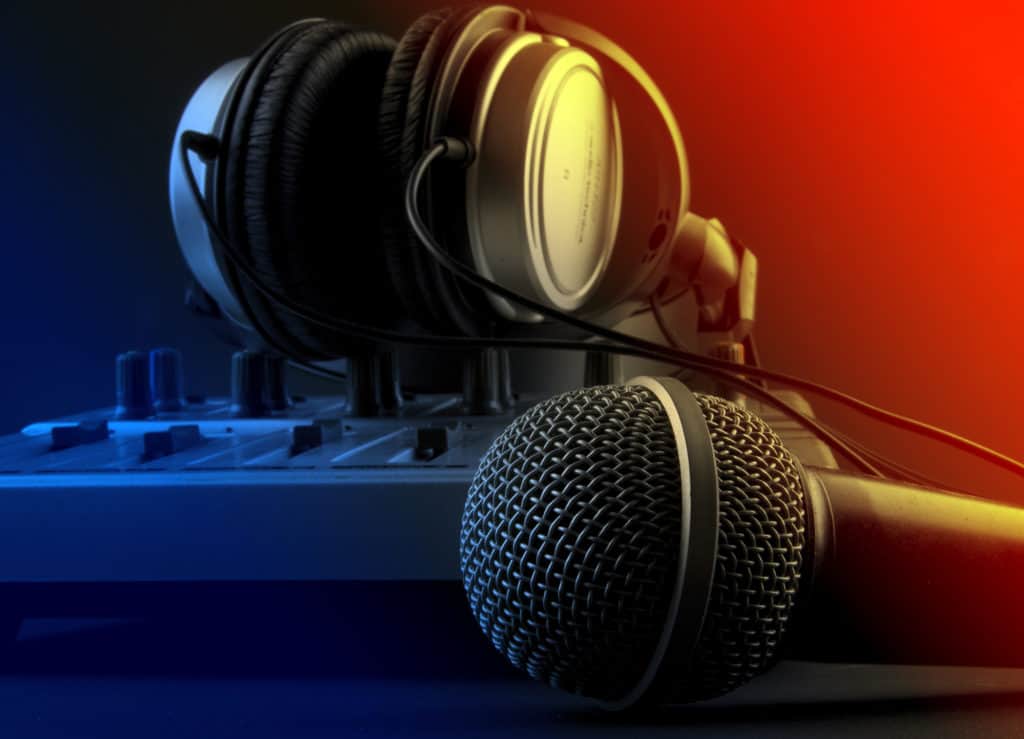Learning to proof your audiobook will save you loads of time when you move on to mastering your audio files. After a narrator has recorded an entire audiobook, it needs to be edited, proofed, and mastered. The proofing phase is important because it’s the last chance to make changes to the audio files.
The proofing phase, sometimes called Quality Control, is the process of listening to the audiobook critically. Use headphones and listen for:
- Repeated phrases (outtakes) that should have been deleted
- Proper use of narration skills such as word emphasis or pauses
- Consistent accents and pronunciations
- Unwanted sounds that were missed during editing
- Quiet gaps caused by editing that need to be filled in with room tone
The editing phase removes larger errors like mouth noises, various outtakes, coughs, paper rustling, and more.
During audio mastering, the sound levels are adjusted to make the audiobook sound its very best. The result is that listeners will not have to adjust their volume controls as they listen to the audiobook, and this creates a good listening experience.

How to do Audiobook Proofing
When you proof your audiobook, carefully listen and note places where the narrator may need to be rerecord. The audiobook proofer may:
- Place markers in the audio recording
- Mark the audiobook script (Read this article How Do You Write an Audiobook Script if you want to learn more about audiobook scripts.)
- Keep a log of the errors. This log should include chapter, page, line, time of error, and comments.
The proofer may use all three techniques for additional clarity to the narrator.
How Long Does Audiobook Proofing Take?
Audiobook proofing takes at least as long as the duration of the audiobook, plus the time it takes to note any errors. Typically, proofing takes about 20% more time than the length of the audiobook.
For example, if a finished audiobook is 6.5 hours long, then proofing may take 7.8 hours. My article How Long Does It Take to Narrate an Audiobook discusses the details ofwhat needs to happen during audiobook production, and specifically, the length of time needed for audiobook proofing.
Audiobook Proofing Tips
If you are both the narrator and the proofer, there are several things you can do to make proofing a little easier.
- Follow along with the audiobook script as you listen to the audiobook.
- Listen in small chunks of time so that you can stay focused while listening for errors. Concentration is tiring, and you need to schedule in breaks.
- Don’t try to proof while you are editing. When editing, you are listening for larger more obvious errors. However, proofing an audiobook requires careful attention to detail. You should consider doing the proofing on a different day from the editing.

Should the Narrator Also Be the Proofer?
As the narrator, you should proof your audiobook after it is edited. After you’ve completed your proofing, you should also get a new set of ears to listen to the recording. It’s not uncommon for a narrator to have five to ten reading errors during a one hour reading.
For example, if you have accidentally mispronounced a word, you may not hear that you have different pronunciations for the same word in different parts of the recording.
Another example, is if you are used to hearing an intermittent noise during your recording, you may not catch it if you are proofing, but a new set of ears is likely to catch the sound.
Audiobook Proofing Jobs
Many narrators and editors earn extra money by working as audiobook proofers. This job is usually done remotely, so you can work from any location in the world.
For beginners, the easiest way to get started is to register with online market places like Fiverr, Upwork, People Per Hour, and Freelancer. Keep in mind, that on these sites audiobook proofing will more likely be combined with audio editing or narration. These marketplaces will allow you to get practice while expanding your portfolio.
Keep in mind that all of these sites extract a fee per transaction (about 20%). Once you have experience, you may want to find your own clients by creating your own website and advertising.
Some publishing houses still hire audiobook proofers like Tantor Media and Listen Up AudioBooks. However, most audiobook publishers are looking for a narrator who can also edit and proof their work.
Conclusion
Audiobook proofing is the last chance to make changes to your audiobook before the mastering phase. As a beginner, it’s best if you proof your own audiobook, and then have someone else proof it as well.
Have you found proofing gigs on one of the online market places? Let me know in the comments below.

